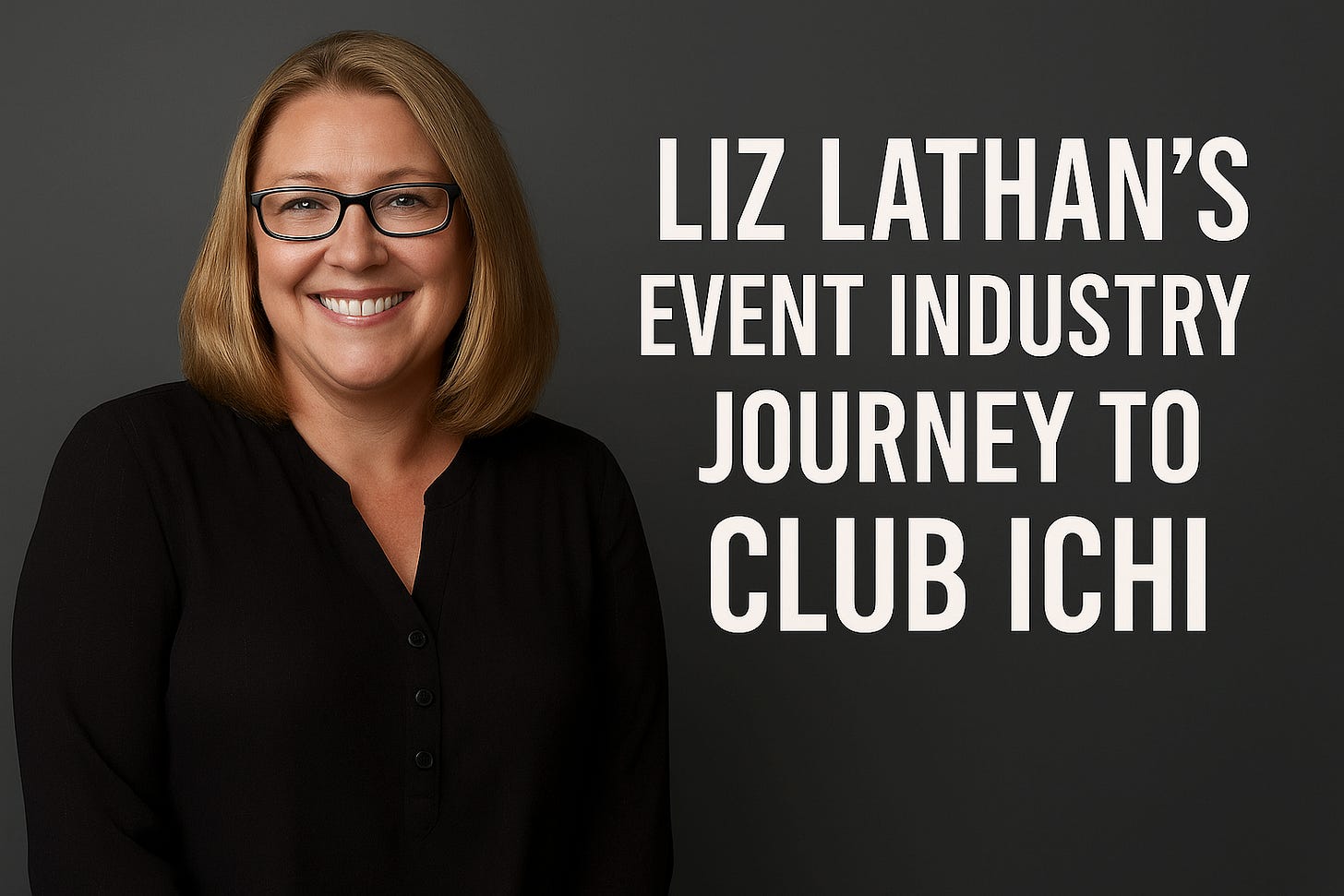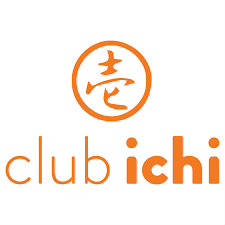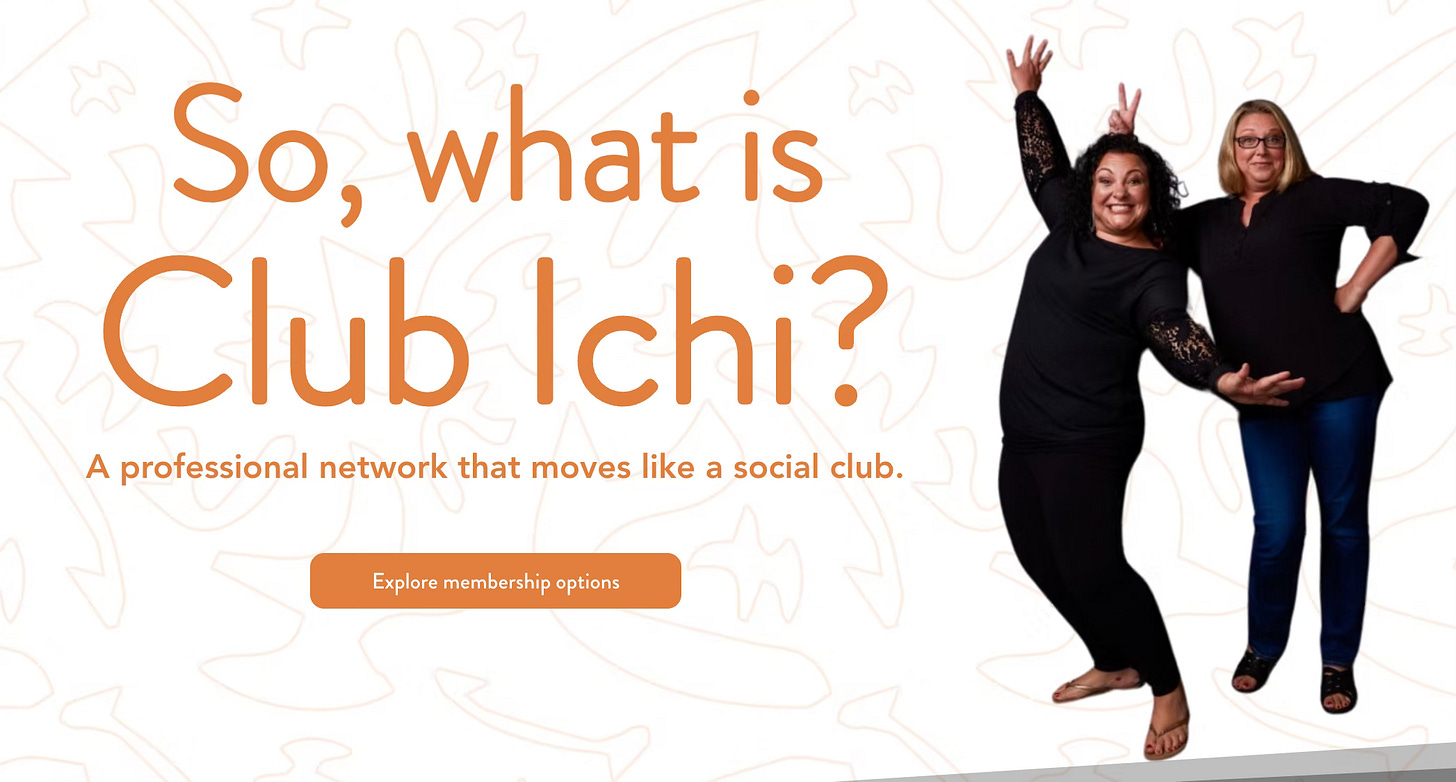The Wisdom Bank: What Is Club Ichi—and Who Is Liz Lathan?
With longtime collaborator Nicole Osibodu, Liz Lathan didn’t just build a community—she designed a new emotional operating system for events ( Listen to the Song Below)
When you walk into a room hosted by Liz Lathan and Nicole Osibodu, something shifts. No one asks what you do. No one scans your badge. You’re handed a role before you know you needed one—and by the time you’ve poured your second glass of wine, you feel like you've been seen.
That’s the essence of Club Ichi.
It doesn’t arrive with fanfare or flash. It unfolds. Quietly. Intentionally. And what it’s building isn’t a membership platform—it’s emotional infrastructure for the most emotionally intelligent people in the event industry.
The architecture starts with Liz Lathan. She was an only child in Georgia who discovered, early on, that the best way to belong was to host. As a kid, she wasn’t quite at home at the adults’ table and didn’t fit with the kids either. So she created her own place—folding napkins, setting foreign coins under plates, orchestrating dinner party rituals like a young event producer with something to prove.
Years later, that instinct evolved into a leadership role at Dell, where she co-launched Dell World. But despite the scale and the stakes, the joy had dulled. The excitement she once had was replaced by rinse-and-repeat logistics. So she left—not for something smaller, but for something more meaningful.
By high school she was founding clubs. In college at Texas A&M, she studied journalism and ran a campus radio show. She joined a sports car club, but found her groove hosting the afterparties, not revving engines. After graduation, she started in PR at National Instruments. That’s where the bug really bit—when her manager was sidelined, she was suddenly running registration for a major user conference. Chaos, deadlines, adrenaline—and she loved it.
She detoured briefly into tech recruiting, then pivoted into association events. Five years, two associations, a CMP certification, and a return to her editorial roots. She ran magazines and programmed conferences. She curated speakers before curation was a buzzword.
Then came Dell. Over a decade, she rose from briefing center support to head of global events. She launched the first Dell World in 2011 and stitched together content, strategy, and scale with the precision of an engineer and the soul of a journalist. But eventually the spreadsheets got heavier. The rinse-and-repeat dulled the edges. She didn’t want to be the person with all the answers. She wanted to be surprised again.
She wanted to create again.
At a conference a few years back, she met her match: Nicole Osibodu. A human tuning fork disguised as a producer. Nicole has a gift—it’s hard to name, but easy to feel. She walks into a room and immediately starts fixing it. She doesn’t work the room. She reads it. She senses who feels left out and bridges the gap without making it obvious. Her superpower, now widely known as “The Wingman Protocol,” has become a defining emotional technology in the Ichi ecosystem.
Together, Liz and Nicole created something that started as an experiment: a no-agenda gathering inside a children’s museum in Austin, Texas. No speakers. No panels. Just sticky notes, honest conversation, and tiny chairs. It was called Haute Dokimazo—and despite the playful name and the pint-sized seating, what happened was serious. The attendees didn’t just engage. They transformed.
That event led to the creation of the Spontaneous Think Tank, which would become Club Ichi’s signature format. It starts with a blank wall—the “Wall of Woes”—where participants anonymously write down their biggest current challenge. Others walk by and add their names to topics they’ve personally solved. In real time, the agenda emerges. You don’t attend a panel. You lead a conversation. You don’t perform. You participate. And no one’s allowed to rehearse.
What powers this approach isn’t novelty—it’s neuroscience. Liz and Nicole built a model they call HAAAM: Hopeful, Adventurous, Accepted, Active, Motivated. If a gathering doesn’t create those five emotions, it doesn’t qualify as an Ichi experience. It’s their personal North Star, and the reason their events feel more like memory-making than programming.
In 2019, they put it all to the test.
They invited 80 people to show up at an airport without knowing where they were going. Only once they reached the gate where they told: Tuscany, Italy.
At the heart of their success was a willingness to challenge the status quo and embrace vulnerability. The inaugural experiment in Tuscany wasn’t just about innovative formats—it was about fostering genuine connection and psychological safety.
When they arrived, the adventure truly began. There were no instructions, only possibilities—each participant was asked to trust the process and lean into uncertainty. The group navigated a series of creative challenges designed to spark vulnerability and genuine connection, from spontaneous storytelling circles to collaborative art projects using found objects. With each shared experience, strangers became confidants, and the unfamiliar surroundings started to feel like home.
Attendees left not only with new ideas but with a renewed sense of purpose and belonging, carrying forward the impact long after the event ended.
The event was called Secret Family Reunion because it felt more like a family gathering than a B2B conference. Instead of an agenda, they kept count of how many moments cracked them open. How many people they truly connected with. How many conversations changed everything.
There were barefoot brainstorms under olive trees. Sticky notes on Tuscan walls. Career epiphanies over truffle risotto. One person cried before lunch. Another rewrote their entire business model by dessert.
It became the prototype for Club Ichi’s most whispered-about tradition: the Secret Trip.
There is no list of keynotes or breakouts. No details about the trip. You receive a date, a city, and a suitcase prompt. The destination is revealed only when it’s time to board. It’s not a stunt. It’s the architecture of trust. The disorientation is part of the design. And the emotional intimacy it produces can’t be faked. When no one knows the plan, everyone becomes part of building it.
Currently, Club Ichi has more than 450 paid members and over 11,000 individuals who follow its activities.
Each Secret Trip is a leap into the unknown, where the journey itself becomes the destination. Participants surrender to curiosity and collective wonder, knowing that the lack of a roadmap is an invitation to discover new parts of themselves—and of each other. This intentional unpredictability fosters a sense of unity and openness, making every moment an opportunity for authentic connection and transformation.
But the intimacy remains intact. Nicole and Liz don’t market the way most communities do. They “candy crush”—reaching out one-on-one, person by person, with warmth and curiosity. There is no mass onboarding, no badges, no stage lighting. Everyone enters the same way: through a real invitation.
They’ve taken the model on the road—embedding think tanks inside partner events, hosting DJ lessons at Dub Academy in Austin, running supper clubs in New York and San Diego, training salespeople in emotional intelligence. But they’ve never lost the ritual that defines them: ask someone what’s hard. Ask someone what they’ve solved. Build something human in between.
What they’re building isn’t scale. It’s cultural capital. It’s belonging you can feel in your nervous system.
Someday, you might get a note. It won’t say much. Just:
“We think you belong. Pack light.”
Because the only thing heavier than your suitcase will be the truth you come home with.







Love this article and The Club Ichi Team.